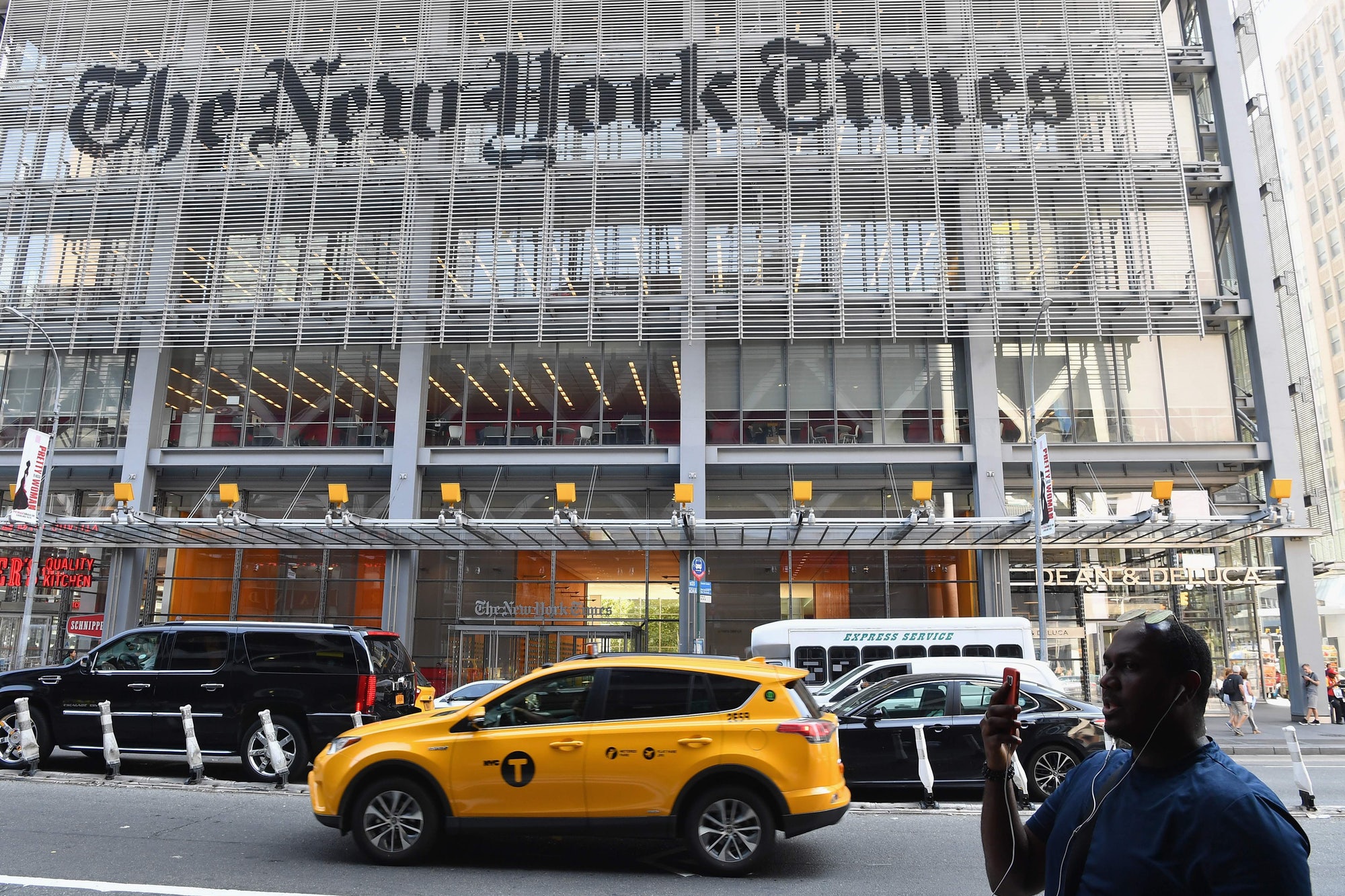Who writes Op-Eds for the New York Times? Winners of the Nobel Memorial Prize. Authors of nationwide bestsellers. Pulitzer-winning journalists. And recently added to the list, is a global terrorist group: Taliban. The Times published an Op-Ed article on February 21th titled “What we, the Taliban want” written by the deputy leader of Taliban, Sirajuddin Haqqani.
The decision to publish the article was questioned and the Times immediately faced fierce criticism. Grave concerns were raised about one of the most internationally influential media outlets propagating words of a despicable extremist group accused of violating human rights and causing chaos in Afghanistan for nearly two decades. Voicing claims through a renowned paper which sugar-coated Haqqani’s piece and made it look like other Op-Eds allowed the Taliban to appear as a legitimate entity. This in turn made their voice seem persuasive and worth listening to, which is what the Taliban had been craving for years.
Are those concerns far-fetched? Are we fixated by the third person effect, biased that others would be more vulnerable and easily persuaded by media messages than ourselves?
Maybe we are underestimating the readership as the Taliban has received massive media coverage since the “War on Terror.” Their constant presence in the media may have informed readers about situational awareness in Afghanistan, well enough to cast reasonable doubts against blatant propaganda. Making the Taliban look legitimate might be inevitable. Albeit not recognized as a state, the Taliban is in fact a partner to the U.S. in negotiating a peace deal withdrawing American troops. This lays ground for publishing their claims, informing the public of a major diplomatic breakthrough by providing robust opinions on the other side of the table.
But this certainly should not be the case for granting Op-Eds. The threshold for facts lowers substantially in Op-Eds to deliver original viewpoints, and duty for fact-checking is largely delegated to contributors. Loopholes in the editorial process can thus resonate unsubstantiated and misleading arguments just like this article.
Mr. Haqqani almost portrays the Taliban as guardian angels of peace, claiming to make the new Afghanistan a “bastion of stability.” While Afghanistan is again turning into a volatile battleground, there are prevailing concerns among international media; he denounces them as “inflated,” and “politically motivated exaggerations by the warmongering players on all sides of the war.” There are touching yet appalling lines, like “Everyone has lost somebody they loved. Everyone is tired of war. I am convinced that the killing and the maiming must stop.” As a matter of fact, 3,403 civilians were killed and 6,989 were injured in Afghanistan last year. 47% of these casualties were caused by Taliban attacks, according to a recent UN report.
It is hard to believe that Op-Eds were the only viable option for the Times. Any form of article that would involve the editorial process and provide leeway for reasonable doubt would have been possible – interviews involving reporters, rebuttal comments added by editors, fact-checks to debunk the Taliban’s flagrant lies, just to name a few.
CNN’s exclusive on the Taliban published last year epitomizes how journalism should perform the challenging task of depicting the evil, without normalizing or legitimizing it. In February 2019 two
CNN reporters were granted 36 hours of access within Taliban-controlled areas. Improvising interviews with residents and making observations under Taliban guidance, they denied to serve as mere amplifiers. Examinations and dialogues were either supported by further analysis or juxtaposed with contradictory arguments, such as adding comments like “To many Afghans, however, the Taliban is better known for civilian casualties than civilian governance” directly put after reporting Taliban-led governance.
Op-Eds are “Anything well-written with a fact-based viewpoint we believe readers will find worthwhile,” quoted from New York Times. Failing to meet its own editorial standards by delivering one-sided and partisan extremist views, the Times’ decision will continuously be referred to as a negative precedent of media withdrawing from its own journalistic duties.
Image Credit: The New Republic

